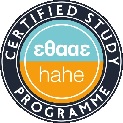Τhis 14th issue of i-MBA SCOPE, focuses on Greek Tech, and more precisely the deep-tech landscape in the country, deep-tech startup funding and the case of one of the leading Greek deep-tech startups, Biological Lattice Industries (BLI).
We are in the beginning of the next technology revolution, that of artificial intelligence. Simultaneously, and with increasing AI support in the discovery and testing processes, a range of new science-based technologies are emerging, what is often referred to as deep-tech. And Greece plays a new role in this context, with an increasing number of tech startups growing fast and successfully, and a number of global tech companies establishing operations here. In our MBA programme this is reflected in courses, cases, projects and guest lectures that approach technology from many different angles, with the objective of growing the students’ understanding, awareness and decision-making capabilities related to technology.
This inspired the idea to devote this issue of i-MBA SCOPE to Greek Tech, focusing on the context, the ecosystem and the funding landscape as well as on tech companies themselves.
The Draghi Report, published in September 2024, sounded alarm bells that Europe is lagging seriously behind the U.S. and Asia in terms of tech development, mostly due to fragmented policies and lack of structured funding. Now, in the fourth month of office of the Trump administration, with a trade war becoming reality, and discontinuous often shocking announcements about tariffs and other geopolitical outbursts hitting the news every day, the table might be turning around. If the tariffs end up backfiring on the U.S., as many predict, Europe must assert itself and seize the opportunity to stand out as a stable and favourable destination for establishment of and investment in technology companies.
In the first article, Konstantinos Lafkas, Parter at uni.fund and i-MBA Alumnus introduces the topic of deep-tech startups, their funding and conditions for growth. He states that in Europe, and particularly in Greece, there is a growing interest in deep-tech investments, spurred by advancements in university research. However, there is a gap in translating research outcomes into marketable innovations. Deep-tech startups face challenges in commercialization, often due to a lack of business skills within research teams. Effective strategies combine venture capital with both external and state funding, and collaborations with large corporations can provide essential resources and market access. For success, startups must ensure balanced partnerships and retain control over intellectual property while fostering strong business acumen to complement their technical expertise.
What are the key success factors and the conditions that allow deep-tech ventures to flourish in Greece? The interview with Filippos Tourlomousis, Founder and CEO of Biological Lattice Industries (BLI) provides important insights. Of utmost importance is to combine scientific and technical innovation with business model innovation. Having done so, BLI enables non-experts to create complex 3D structures, thus addressing gaps in regenerative medicine, sustainability, and advanced biomaterials. The company has also fostered key partnerships, including with MIT and Greek venture fund uni.fund, to expand globally. Despite Greece’s limited tech ecosystem, BLI has leveraged local resources and talent to drive growth, aiming to enhance Greece’s deep-tech presence worldwide.
Funding of technology startups, especially emerging deep-tech ventures is the topic of the interview with Guy Krief, Partner at Big Pi Ventures and President, La French Tech Athens. Since its launch in 2018, Big Pi has emerged as a driving force in deep-tech investing, backing world-class founders with Greek roots. The interview offers insights on where Greece’s strengths lie—AI, crypto, and shipping—and outlines both the promise and the challenges of deep-tech. Guy Krief calls for coordinated state support, strong IP transfer frameworks, and a long-term vision to turn Greece into a global hub for innovation.
Finally, Demitris Pournarakis, Co-Founder nimbata and Data Scientist, highlights that launching a tech startup in Greece presents both unique opportunities and challenges. The advantages include global market access, a talented workforce, increased funding availability, and a supportive startup ecosystem. However, challenges include competing with better-funded international companies, the difficulty of gaining global visibility from Greece, and the risk of creating products that may not resonate outside local markets. Entrepreneurs need to weigh these factors carefully and be prepared for a challenging but potentially rewarding journey.
As always, this 14th issue of i-MBA SCOPE also contains alumni contributions and news, and updates about program activities. Alumnus Stelios Matthaiou, Senior Director Ostomy Care at Convatec UK, shares highlight from his inspiring career journey of purpose, innovation and global impact. We thank the outgoing and present the new Alumni Association Board, highlight the recent top ranking in the QS Global Trade Rankings, publish the call for the 2025 admissions, and present many other exciting news and activities that took place during the last months in the program.
Find i-MBA SCOPE on LinkedIn, as a LinkedIn Newsletter!
Regular postings of new and classic SCOPE articles, in combination with exclusive content, contribute to diffusing knowledge on timely business trends and practices from professors, alumni and business partners of the MBA International. Welcome to subscribe!
With Best Spring Regards,
Eric Soderquist
Director, MBA International Program















